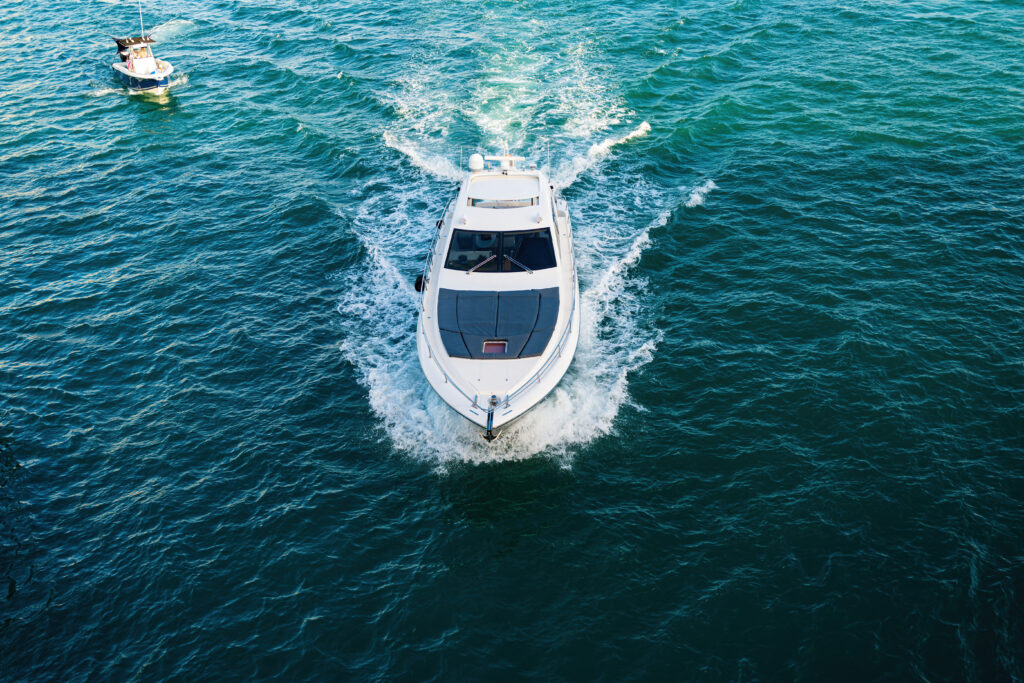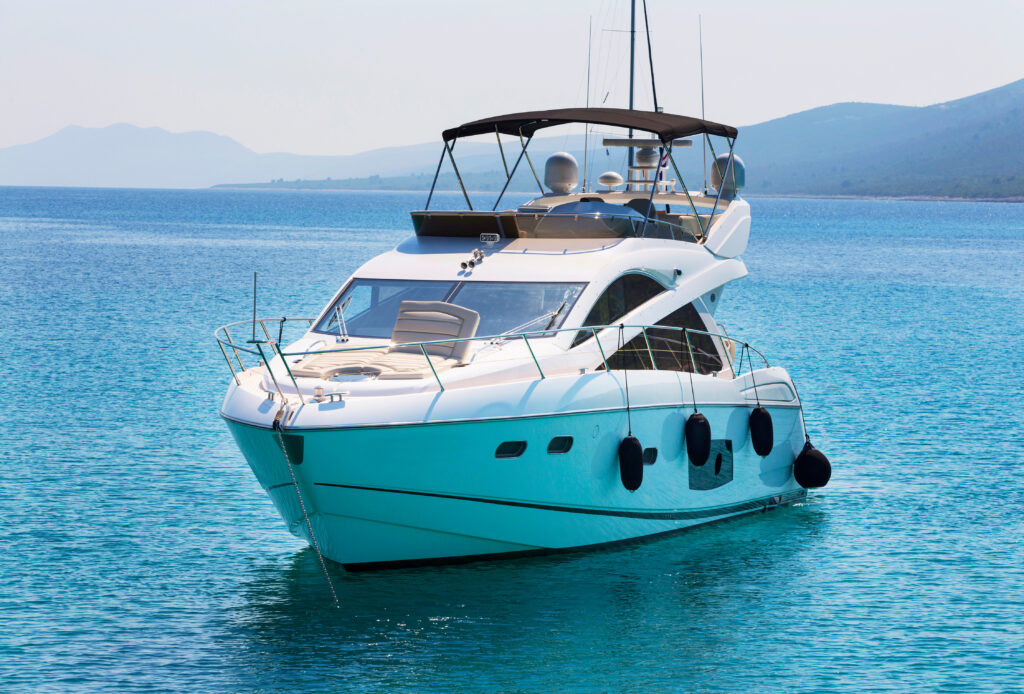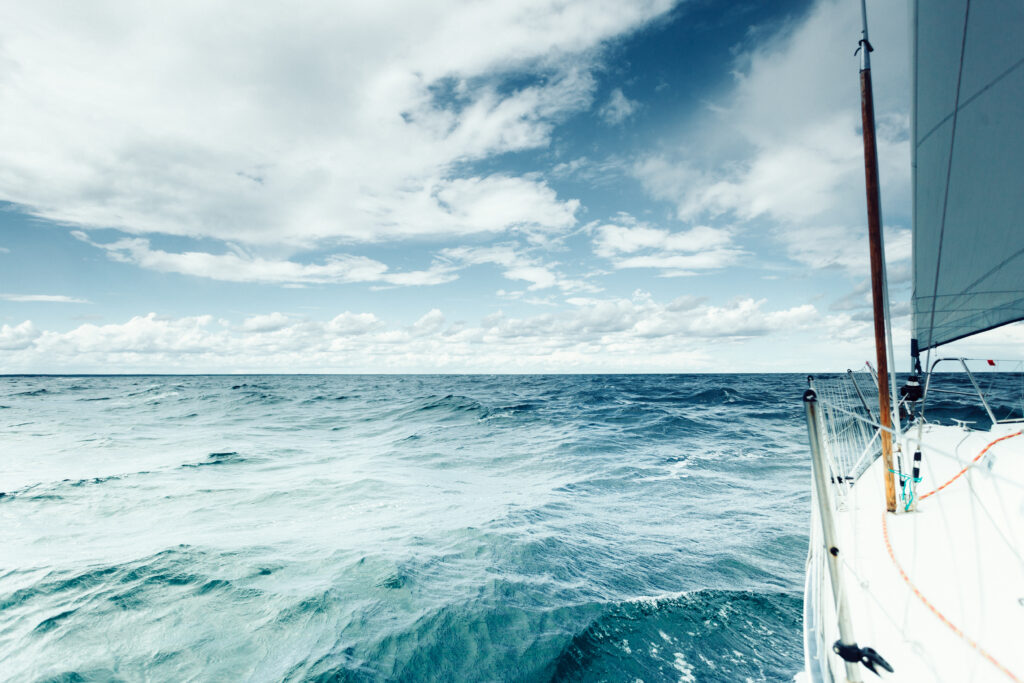Chartering a yacht is an exciting way to explore the open seas, discover hidden coves, and enjoy the freedom of life on the water. In this blog post, we’ll break down everything you need to know about licensing requirements for yacht charters. From understanding the difference between bareboat and crewed charters to exploring regional regulations and certification options, we’ll help you navigate the process so you can set sail with confidence.
Understanding Yacht Chartering
Chartering a yacht offers a unique opportunity to experience the joys of sailing without the long-term commitment of owning a vessel. However, before diving into the details of licensing, it’s important to understand the basics of yacht chartering and the options available.
What Does It Mean to Charter a Yacht?
Chartering a yacht involves renting a boat for a specified period, allowing you to enjoy the freedom of exploring waterways at your own pace. Depending on your preferences and sailing expertise, you can choose from different types of charters.

Types of Yacht Charters
- Bareboat Charter: This option allows you to rent the yacht without a crew. You are responsible for navigating, operating, and maintaining the vessel during your trip. Bareboat charters typically require proof of sailing experience or specific certifications.
- Crewed Charter: With this option, a professional crew—often including a skipper and sometimes additional staff like chefs or deckhands—manages the yacht for you. This is ideal for those who want a more relaxing experience without needing to handle the technical aspects of sailing.
Each type of charter offers its own set of advantages, but your choice will often determine whether or not you need a license. Bareboat charters generally require some level of certification or proof of competence, while crewed charters typically do not. Understanding these distinctions is key as you plan your yacht adventure.
Do You Always Need a License to Charter a Yacht?
Chartering a yacht is an exhilarating way to explore the open seas, but before setting sail, it’s essential to understand whether you need a license. The answer depends on factors such as the type of charter, your destination, and your sailing experience.
General Requirements for Bareboat Charters
A bareboat charter allows you to rent a yacht without a crew, meaning you take full responsibility for navigating, operating, and maintaining the vessel. Because of this, most destinations require you to have a valid sailing license or certification that demonstrates your competence. Commonly accepted certifications include:
- International Certificate of Competence (ICC): Widely recognised in Europe as proof of basic sailing proficiency.
- RYA Day Skipper Qualification: Covers practical navigation and boat handling.
- ASA Certifications: Such as ASA 104 Bareboat Cruising, which is popular in the U.S. and Caribbean.
In addition to these certifications, some regions may require a VHF radio operator’s license to ensure you can communicate effectively with port authorities and other vessels.
Even in areas where licenses are not legally mandated, many charter companies will ask for proof of experience or qualifications for insurance purposes. A detailed sailing resume outlining your prior experience may be sufficient in some cases.
Exceptions for Crewed Charters or Hiring a Skipper
If you’re opting for a crewed charter—where the yacht comes with a professional skipper and crew—you typically don’t need a license. The crew handles all aspects of navigation and operation, allowing you to relax and enjoy the journey.
Alternatively, if you lack the required qualifications for a bareboat charter but still want some independence, you can hire a skipper to accompany you. This option provides flexibility while ensuring safety and compliance with local regulations.
Licensing Requirements by Region
Licensing requirements vary significantly depending on your destination. Here’s an overview of what to expect in key regions:

Mediterranean Destinations
The Mediterranean has some of the strictest licensing requirements for bareboat charters. Countries like Greece, Croatia, Italy, and Spain often require formal certifications such as:
- ICC or RYA Day Skipper Certification: These are mandatory in most Mediterranean countries.
- VHF Radio License: Required in places like Croatia to ensure proper communication at sea.
In Greece, an additional experienced crew member (over 18 years old) must sign a declaration of competence if they lack formal qualifications. Croatia also has stringent rules requiring skippers to carry original licenses for inspection by port authorities.
Caribbean and Other Regions
The Caribbean tends to be more flexible compared to the Mediterranean. In many cases, a formal license isn’t required; instead, charter companies may ask for a detailed sailing resume that outlines your experience with similar-sized vessels.
However, if you’re planning to sail outside popular tourist destinations or on larger yachts, having formal certifications like ASA 104 or ICC can help streamline the process.
Commonly Accepted Certifications
Several internationally recognised certifications can make chartering easier across various regions:
International Certificate of Competence (ICC):
- Required by most European countries.
- Demonstrates basic competence in navigation and boat handling.
- Often obtained through an RYA Day Skipper course or equivalent assessment.
RYA Day Skipper:
- A practical course that equips sailors with skills to handle small yachts in familiar waters.
- Recognised globally and allows holders to apply for an ICC without additional tests.
ASA Certifications:
- Popular in North America and the Caribbean.
- ASA 104 Bareboat Cruising is often sufficient for chartering in these regions.
NauticEd SLC (Sailing License & Credentials):
- Accepted in Mediterranean countries where formal licenses are required.
- Combines theoretical knowledge with practical assessments.
What If You Don’t Have a License?
If you don’t have a formal sailing license but possess some sailing experience, there’s no need to abandon your dream of chartering a yacht. There are several options available to help you navigate licensing requirements or enjoy your trip without the need for certification.

- Take an Assessment: Many RYA (Royal Yachting Association) training centres offer one-day assessments for the International Certificate of Competence (ICC). These evaluations are designed to test your practical skills and theoretical knowledge, allowing experienced sailors to quickly obtain a recognised certification.
- Enrol in Training: If you’re new to sailing or want to build confidence, enrolling in a course like the RYA Day Skipper or ASA 104 Bareboat Cruising is an excellent option. These courses provide hands-on training, covering navigation, boat handling, and safety procedures. Upon completion, you’ll earn a certification that meets the requirements for most bareboat charters.
- Hire a Skipper: For those who prefer not to handle the technical aspects of sailing or don’t have time to obtain a license, hiring a professional skipper is a stress-free alternative. A skipper will manage navigation and operations, allowing you to relax and enjoy your journey.
Regardless of your choice, planning ahead is essential. Research the specific requirements for your destination and ensure you have enough time to complete any necessary assessments or training. By taking proactive steps, you can still experience the freedom and adventure of chartering a yacht, even without an existing license.
Factors Influencing Licensing Requirements
The need for a license to charter a yacht isn’t always straightforward and can depend on several key factors. Understanding these influences will help you navigate the process and ensure you’re fully prepared for your trip.
- Size and Type of the Yacht:
The size and complexity of the yacht play a significant role in determining licensing requirements. Smaller sailboats or motorboats are often easier to operate and may have less stringent requirements, especially in regions with flexible rules. However, larger yachts or those with advanced systems, like catamarans or luxury motor yachts, typically require proof of more extensive experience or higher-level certifications. This ensures the safety of both the vessel and its passengers. - Destination-Specific Maritime Regulations:
Licensing requirements vary widely depending on where you plan to sail. For example, Mediterranean countries such as Greece, Croatia, Italy, and Spain often have strict regulations requiring formal certifications like the International Certificate of Competence (ICC) or RYA Day Skipper qualification. In contrast, regions like the Caribbean are generally more lenient, with many charter companies accepting a detailed sailing resume in lieu of a formal license. Always research the local maritime laws of your destination to avoid unexpected complications. - Insurance and Liability Considerations:
Even if local regulations don’t mandate a license, most charter companies require proof of competence to meet their insurance policies. Without proper qualifications, you may face challenges securing a bareboat charter or risk invalidating the yacht’s insurance coverage in case of an incident. Charter companies also consider liability risks when assessing whether to approve your booking.
Why Choose Admiral Marine For Your Yacht Insurance?
At Admiral Marine, we understand the unique needs of leisure sailors and are here to support you every step of the way. Not only can we provide expert advice on preparing for your charter, but we also offer bespoke yacht insurance policies tailored to your specific needs. Whether you’re planning a short coastal trip or embarking on a global adventure, our comprehensive coverage ensures peace of mind while you enjoy your time on the water.
With Admiral Marine’s yacht insurance, you’ll benefit from flexible policies that can adapt to your cruising plans, no matter where your journey takes you. Our experienced team is always available to assist with everything from arranging coverage to providing guidance on maritime safety. Plus, we never charge administrative fees for mid-term changes, so you can make adjustments as your plans evolve. Ready to set sail? Contact Admiral Marine at 01722 416106 or apply for a personalised quote to protect your yacht and enjoy unparalleled support from experts who truly understand the world of sailing.



